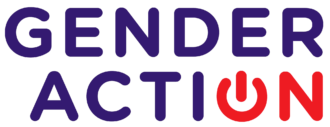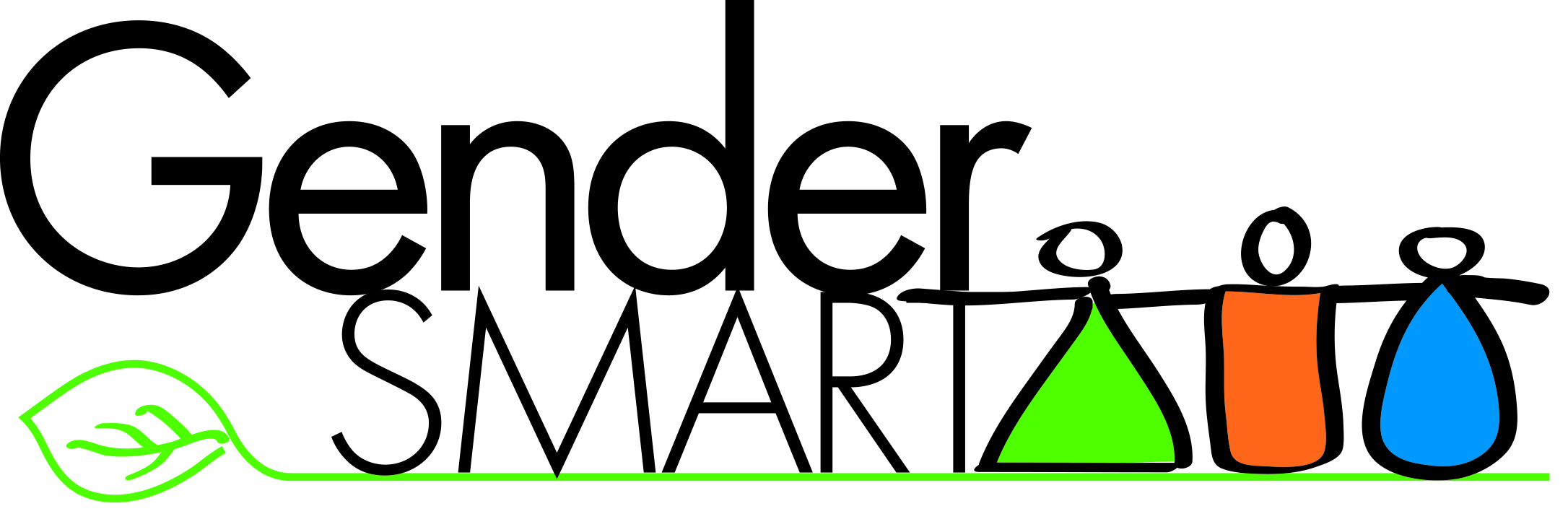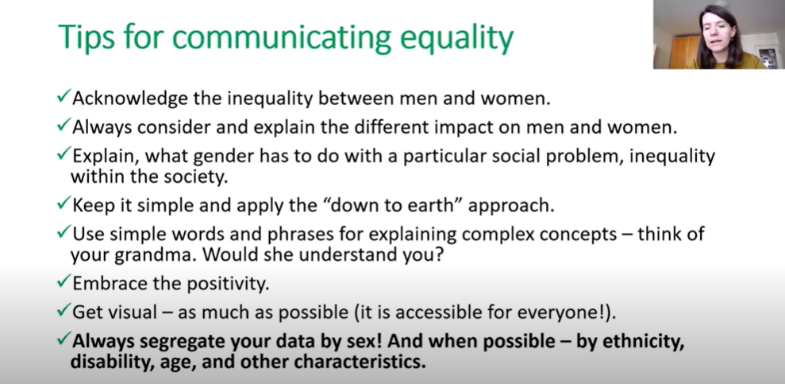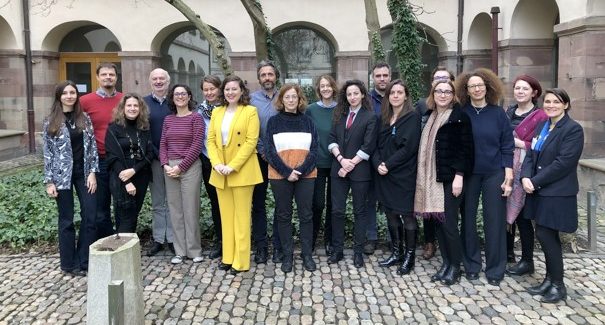
What’s new in the Centre for Gender and Science?
In recent months, we have witnessed unprecedented measures that very few of us would consider possible a few months ago. Whether it is the border closure or national curfew, our lives, personal and professional, have been fundamentally affected by the outbreak of COVID-19 pandemic. Nevertheless, our work continued in spite of the government restrictions, as carrying on became so important in living through the quarantine. Thus, we have decided to inform you on our Horizon 2020 projects’ activities, which have been particularly influenced by the current events, but yet did not cease to work on the promotion of gender equality in research and innovations.
GENDERACTION
For GENDERACTION, the year has started with a February mutual learning workshop (MLW) ”Communicating gender equality policy in R&I and creating impact“ in Prague. On the first day, Lucy Fergusson took the participants on a tour de force on resistances and how to argue for gender equality in research. With incredible insights from Gemma Irvine, Vice-President for Equality and Diversity at Maynooth University, and Viviane Willis-Mazzichi, former Head of Gender Sector in the DG RTD of the European Commission, on advocating for gender equality, we all learnt about the importance of patience, being steadfast and communicating with open mind. Day two was dedicated to building national and European impact plans, with the aim to bring into practices the various GENDERACTION recommendations.
Just before the closure of borders, GENDERACTION organised a MLW on gender in international cooperation in R&I for the Danube and Balkan region in Belgrade. The MLW brought together representatives from Bosnia and Herzegovina, Germany, Kosovo, the Republic of Moldova, the Republic of North Macedonia and Serbia. The MLW participants agreed that in the Balkan and Danube region, gender balance among researchers and student body is not a problem. However, continued issues lie in women’s access to decision-making positions, sexual harassment in Higher Education and a general lack of interest regarding gender issues in R&I. There was a shared feeling across the countries regarding the positive impact that EU gender equality policies in R&I on the development of the region. The participants also agreed that it was necessary to build community involvement to help to advance gender equality in research and higher education.

Furthermore, the GENDERACTION team published its 14th policy brief on Disruptive Measures for Gender Equality in R&I in which it argues that to achieve substantive gender equality in R&I, disruptive measures are required. The brief introduces two forms of disruptive measures: temporary special measures addressing gender imbalances and ambitious measures addressing structures. The paper also includes examples of what disruptive measures are not and what the GENDERACTION team considers inspirational for governments, research funding organisations, and research performing organisations.
In April, to keep spirits up amid the COVID-19 pandemic, GENDERACTION launched a Twitter campaign to spread good news and positive developments in the area of gender equality in research and innovation.

Gender-SMART
The goal of Gender-SMART project is to achieve gender equality in seven Research Performing and Research Funding Organisations operating in the agricultural and life sciences research field. Just on the verge of having their Gender Equality Plans endorsed or adopted by the top management, the COVID-19 outbreak hit. Amidst the outbreak, CIHEAM BARI, the Gender-SMART project partner responsible for dissemination, launched a survey “Gender-SMART at the time of Coronavirus“ on 6 April 2020 to map the impact of COVID-19 on research staff in the consortium partner organisations. Since the start of the outbreak, countries around Europe, all plunged into this unprecedented public health emergency, have been announcing measures to support their economies/work policies. This is why the survey was designed to take the pulse of Gender-SMART research funding and performing organisations and academia and get a snapshot of the current state of play for work reorganisation and impact on people’s life.
Besides this, the project joined the sister projects and contributed to the online campaign called “#GearingLeaders,“ committed to increasing the number of women in leadership roles. It also aimed to raise awareness on the importance of women in these positions and greater gender equality across all disciplines and positions.
 GE ACADEMY
GE ACADEMY
The coronavirus pandemic caused a significant change of plans for Gender Equality Academy in 2020, as the project is based on training formats, such as summer schools, workshops and sessions, which usually take place in person. The planned training activities on increasing skills and deepening the expertise of HR professionals, researchers, management of research performing organisations, gender trainers and experts were thus partly postponed and partly changed to the online format.
 Among the rescheduled events are the workshop “Participatory methods for gender equality in science,“ workshop “Engaging stakeholders in the design and implementation of Gender Equality Plans in research institutions,“ Train-the-Trainers session in Berlin, the Summer School in Dublin on “Gender Equality Plans: from design to implementation, monitoring and evaluation“ and the Summer School in Madrid on “Gender in research in the scientific fields of climate, energy and mobility.“ Webinars held during the pandemic concerned topics such as different discursive frameworks for gender equality in research and higher education, bias and resistances or integrating sex and gender in research content.
Among the rescheduled events are the workshop “Participatory methods for gender equality in science,“ workshop “Engaging stakeholders in the design and implementation of Gender Equality Plans in research institutions,“ Train-the-Trainers session in Berlin, the Summer School in Dublin on “Gender Equality Plans: from design to implementation, monitoring and evaluation“ and the Summer School in Madrid on “Gender in research in the scientific fields of climate, energy and mobility.“ Webinars held during the pandemic concerned topics such as different discursive frameworks for gender equality in research and higher education, bias and resistances or integrating sex and gender in research content.
An online format novelty in GE Academy is the initiation of the Discursive Open Collaborative Course (DOCC). DOCC is a highly interactive online learning programme that aims at condensing the best available knowledge and expertise on Gender Equality in Research and Innovation stemming from the GE Academy partners and an extended network of contributing nodes and projects from across Europe. The very first DOCC on “Gender Equality in research and innovation: the journey towards Institutional Change” will last eight weeks and offer the opportunity to enhance knowledge of the main EU policy frameworks and priorities on gender equality in research and innovation, understand the institutional change concept and the steps to foster it by designing, implementing and monitoring Gender Equality Plans or use a multiplicity of arguments to engage and advocate on gender equality in research.
![]()
CASPER
Hosted by the coordinator, the European Science Foundation, CASPER kicked off on 9-10 January in Strasbourg. Very productive discussions between all partners showed not only the challenges of a very tightly scheduled two-year project but also the excitement to do a feasibility study on a European award and certification system for gender equality. This project comes at a very opportune time as the new EU Gender Equality Strategy 2020-2025 calls for the potential requirement of Gender Equality Plans from applicants for Horizon Europe funding and the three Standing Working Groups on Human Resources and Mobility, Gender in Research and Innovation and Open Science and Innovation launched a taskforce to review the Charter and Code and give recommendations on the HR Excellence in Research Award on gender equality and open science and innovation.
The CASPER team completed its first output, “D3.1 Policy Framing Report,” which identifies the main windows of opportunities for the creation of a European-level certification on gender equality in Higher Education and Research (HER). Moreover, the report offers an overview of the current European policy frameworks regarding quality and excellence in HER. Further issues that are subject of study in the report are the transition from Horizon 2020 to Horizon Europe and a preliminary mapping of the most representative certification and award systems which relate to gender equality and diversity.
